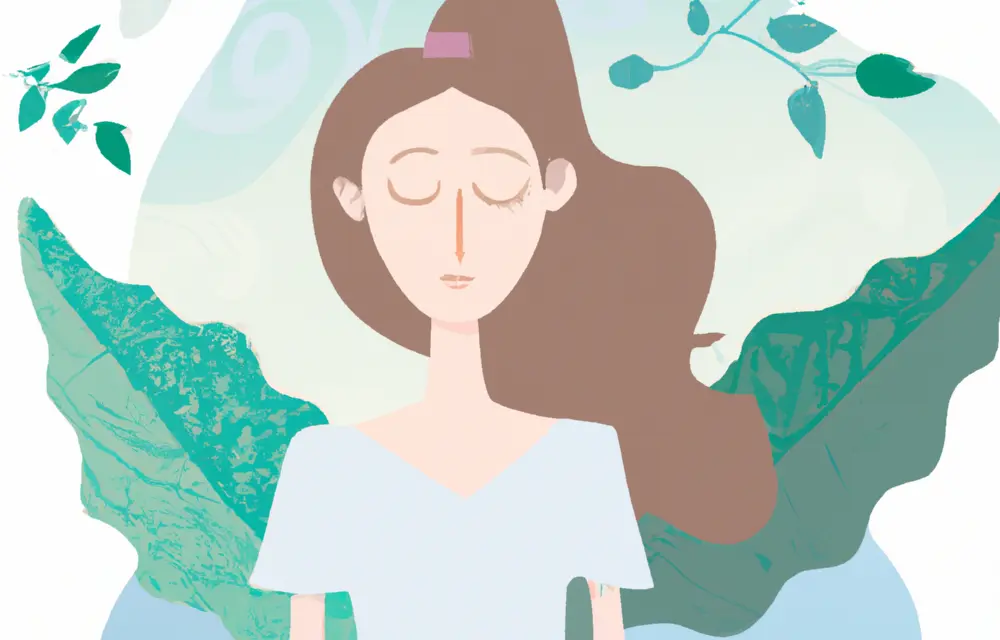I. Introduction
- Definition of anxiety disorders
- Prevalence of anxiety disorders
- The importance of relaxation techniques for managing anxiety disorders
II. What are relaxation techniques?
- Definition of relaxation techniques
- The different types of relaxation techniques
- Why relaxation techniques are important for managing anxiety disorders
III. Common relaxation techniques for anxiety disorders
- Deep breathing
- Progressive muscle relaxation
- Meditation
- Yoga
- Tai chi
- Exercise and physical activity
- Nature therapy
- Massage therapy
IV. Tips for incorporating relaxation techniques into your routine
- Experimenting with different relaxation techniques to find what works best for you
- Making relaxation techniques a priority
- Seeking support from loved ones
- Seeking professional support when needed
V. Conclusion
- Recap of the importance of relaxation techniques for managing anxiety disorders
- Encouragement to make relaxation techniques a regular part of daily routine
Anxiety disorders are a common and often debilitating mental health condition that can significantly impact a person's quality of life. While medication and therapy can be effective treatment options, relaxation techniques are also an important aspect of managing anxiety disorders. In this article, we will explore the various relaxation techniques for anxiety disorders and provide tips for incorporating them into your routine.
First, let's define relaxation techniques and explain why they are important for managing anxiety disorders. Relaxation techniques are strategies that individuals use to relax and reduce stress. There are different types of relaxation techniques, including deep breathing, progressive muscle relaxation, and meditation. Relaxation techniques are important because they can help us to manage stress and improve our overall well-being.
Now, let's explore some common relaxation techniques for anxiety disorders:
- Deep breathing. Deep breathing is a simple yet effective relaxation technique that can be done anywhere, anytime. It involves taking slow, controlled breaths in through the nose and out through the mouth. Deep breathing can help to calm the mind and reduce anxiety symptoms.
- Progressive muscle relaxation. Progressive muscle relaxation is a technique that involves tensing and relaxing different muscle groups in the body to promote relaxation. This technique can be done in a seated or lying down position, and can be an effective way to reduce anxiety symptoms.
- Meditation. Meditation is a relaxation technique that involves focusing the mind on a specific object, thought, or activity to train attention and awareness. Research has shown that meditation can be effective for reducing anxiety and improving overall well-being.
- Yoga. Yoga is a practice that combines physical postures, breathing techniques, and meditation to improve overall health and well-being. Yoga has been shown to be effective for reducing anxiety symptoms and improving overall well-being.
- Tai chi. Tai chi is a Chinese martial art that involves slow, graceful movements and deep breathing. It has been shown to be effective for reducing anxiety symptoms and improving overall well-being.
- Exercise and physical activity. Exercise and physical activity have been shown to have a number of benefits for anxiety disorders, including reducing stress and improving mood. Engaging in regular physical activity can help to reduce anxiety symptoms and improve overall well-being.
- Nature therapy. Nature has a way of calming the mind and reducing stress. Engaging in activities such as hiking, gardening, or spending time in nature can be an effective relaxation technique for managing anxiety disorders.
- Massage therapy. Massage therapy involves the manipulation of the muscles and soft tissues of the body to promote relaxation and reduce stress. Some people with anxiety disorders have reported experiencing relief from their symptoms through regular massage therapy.
Now that we have explored common relaxation techniques for anxiety disorders, let's discuss some tips for incorporating these techniques into your routine. First, it is important to experiment with different relaxation techniques to find what works best for you. This may require some trial and error, but it is important to be patient and persistent. It is also important to make relaxation techniques a priority and to schedule time for them just like any other appointment. Seeking support from loved ones can be helpful in maintaining a relaxation routine. Finally, seeking professional support when needed can be an important aspect of managing anxiety disorders.
In conclusion, relaxation techniques are an important aspect of managing anxiety disorders. By incorporating relaxation techniques such as deep breathing, progressive muscle relaxation, meditation, yoga, tai chi, exercise, nature therapy, and massage therapy into your routine, you can improve your overall well-being and reduce anxiety symptoms. Make relaxation techniques a regular part of your daily routine and watch as your anxiety improves.



